Today marks the 80th anniversary of the liberation of the Auschwitz Nazi death camp. The commemorative event is broadcasting at 10am ET / 4pm Polish time. You can watch in real time with me now.
This event will emphasize remarks from remaining survivors - not politicians or heads of state. Per The Guardian:
“There will be no political speeches at all,” Piotr Cywiński, director of the Auschwitz-Birkenau Memorial and Museum, told the Guardian newspaper.
“We want to focus on the last survivors that are among us and on their history, their pain, their trauma, and their way to offer us some difficult moral obligations for the present.
See the list of confirmed heads of state here.
Last October, I reported on my experience at Auschwitz Museum and Memorial for their Journalism Seminar.
Here are some pictures I didn’t post that I’d like to share with you from the experience.
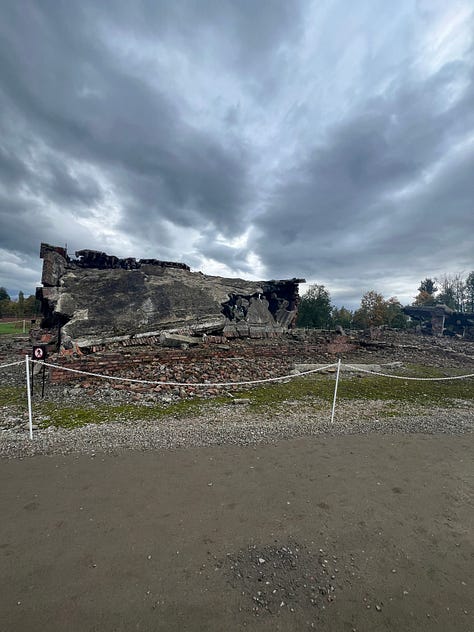
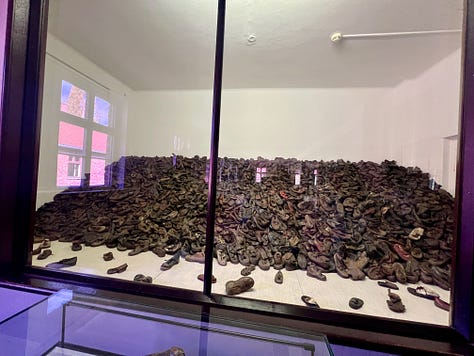
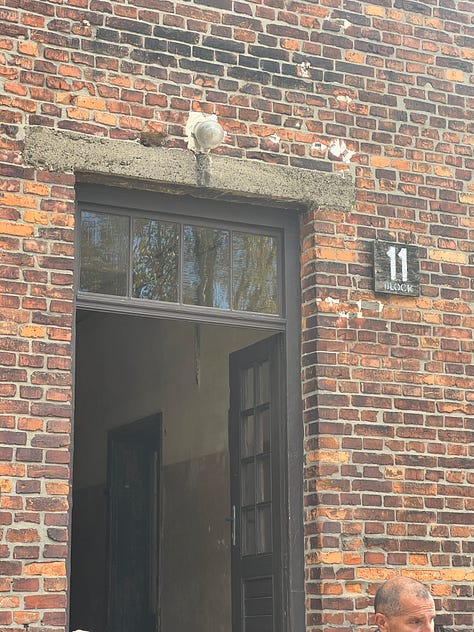
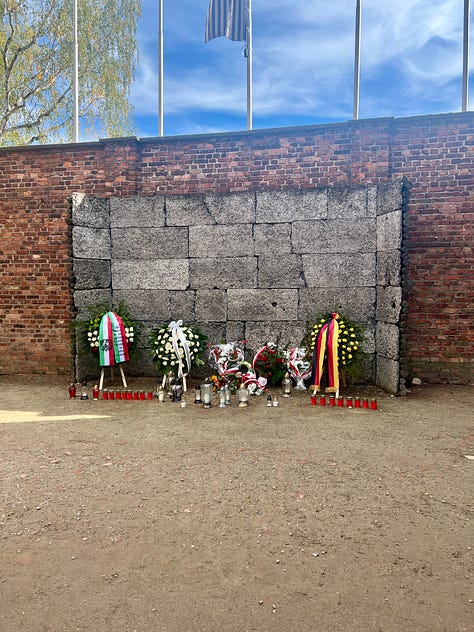
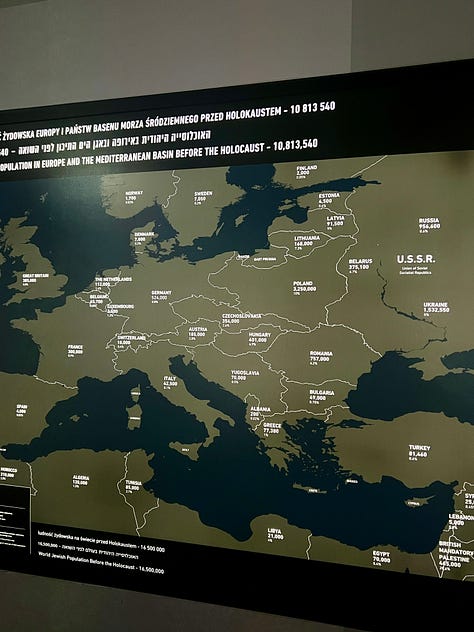
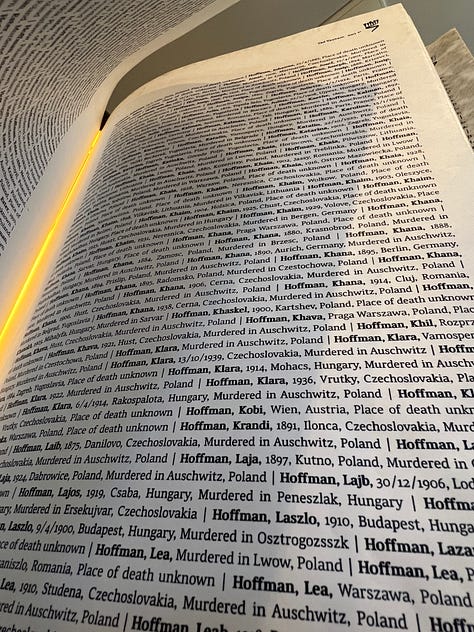
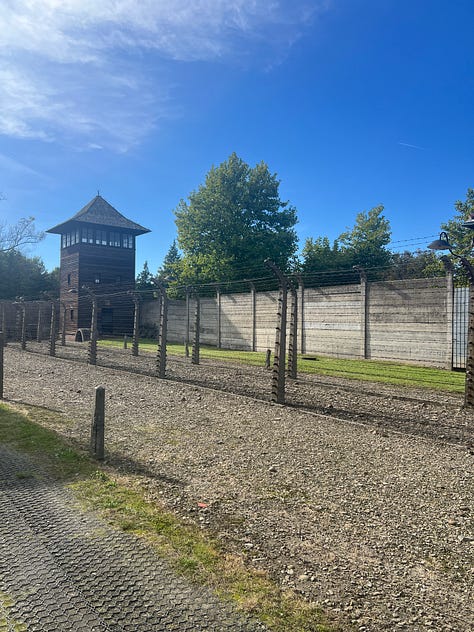
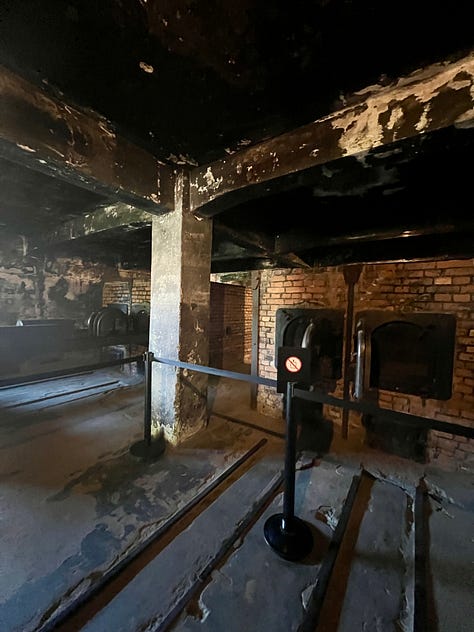
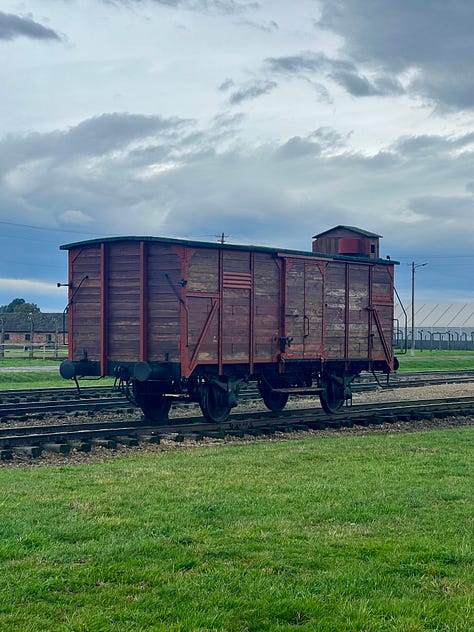
Yad Vashem, Israel’s Holocaust Museum, has diligently identified most Holocaust victims through their Central Database of Shoah Victims’ Names. About 4.5 of 6 million Holocaust victims have been identified. Yad Vashem explains this disparity:
In 2014 the Names Database was expanded to increase accessibility to extensive information on record at Yad Vashem regarding Jews persecuted during the Holocaust period. Details on previously unrecorded victims were added among them many whose fate has yet to be determined. This includes, for example, information on more than half of the 1.5 million Jews who fled or were evacuated to the central parts of the USSR as a result of operation Barbarossa which began on 22 June 1941. Others were imprisoned in work camps or ghettos. In all probability, a large number of these individuals did not survive. Efforts to obtain reliable information testifying to their final fate are ongoing.
As I noted in my reporting from last fall, the memorial and museum is actively working to examine, identify, and honor the stories of all victims of this former death camp. They’re doing yeoman’s work to preserve artifacts and ensure the Holocaust is never forgotten.
The majority of 1.1 million prisoners perished at Auschwitz-Birkenau II. Standing on these hallowed grounds was an experience I’ll never forget, etched in my mind forever.
Holocaust Remembrance Day is a reminder of the evils of anti-Semitism. Today, sadly, there is a global surge in anti-Semitism - including here in the U.S.
Last week, the Conference on Jewish Material Claims Against Germany (Claims Conference) released an inaugural eight-country Index on Holocaust Knowledge and Awareness surveying United States, the United Kingdom, France, Austria, Germany, Poland, Hungary and Romania. Their initial findings were astounding:
The majority of respondents in each country, except Romania, believe something like the Holocaust (another mass genocide against Jewish people) could happen again today. Concern is highest in the United States, where more than three-quarters (76%) of all adults surveyed believe something like the Holocaust could happen again today, followed by the U.K. at 69%, France at 63%, Austria at 62%, Germany at 61%, Poland at 54%, Hungary at 52%, and Romania at 44%.
Shockingly, some adults surveyed say that they had not heard or weren’t sure if they had heard of the Holocaust (Shoah) prior to taking the survey. This is amplified among young adults ages 18-29 who are the most recent reflection of local education systems; when surveyed, they indicated that they had not heard or weren’t sure if they had heard of the Holocaust (Shoah): France (46%), Romania (15%), Austria (14%) and Germany (12%). Additionally, while Auschwitz-Birkenau is the most well-known camp, nearly half (48%) of Americans surveyed are unable to name a single camp or ghetto established by the Nazis during World War II.
ICYMI: Auschwitz Write-Ups
First, at Townhall / here at Outsider on the Inside
And at Angling Right
What is the takeaway from this solemn anniversary? Never Again.




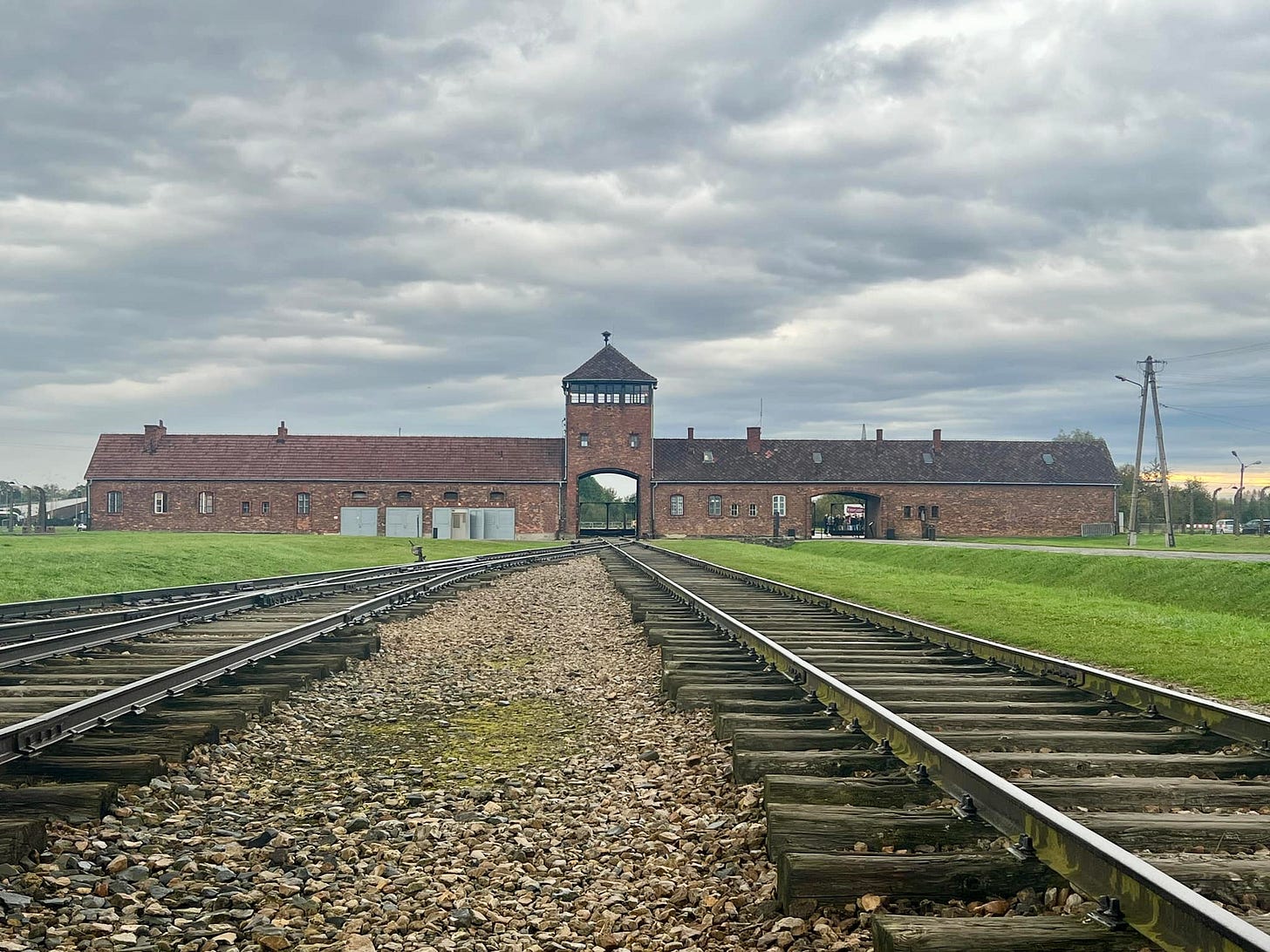
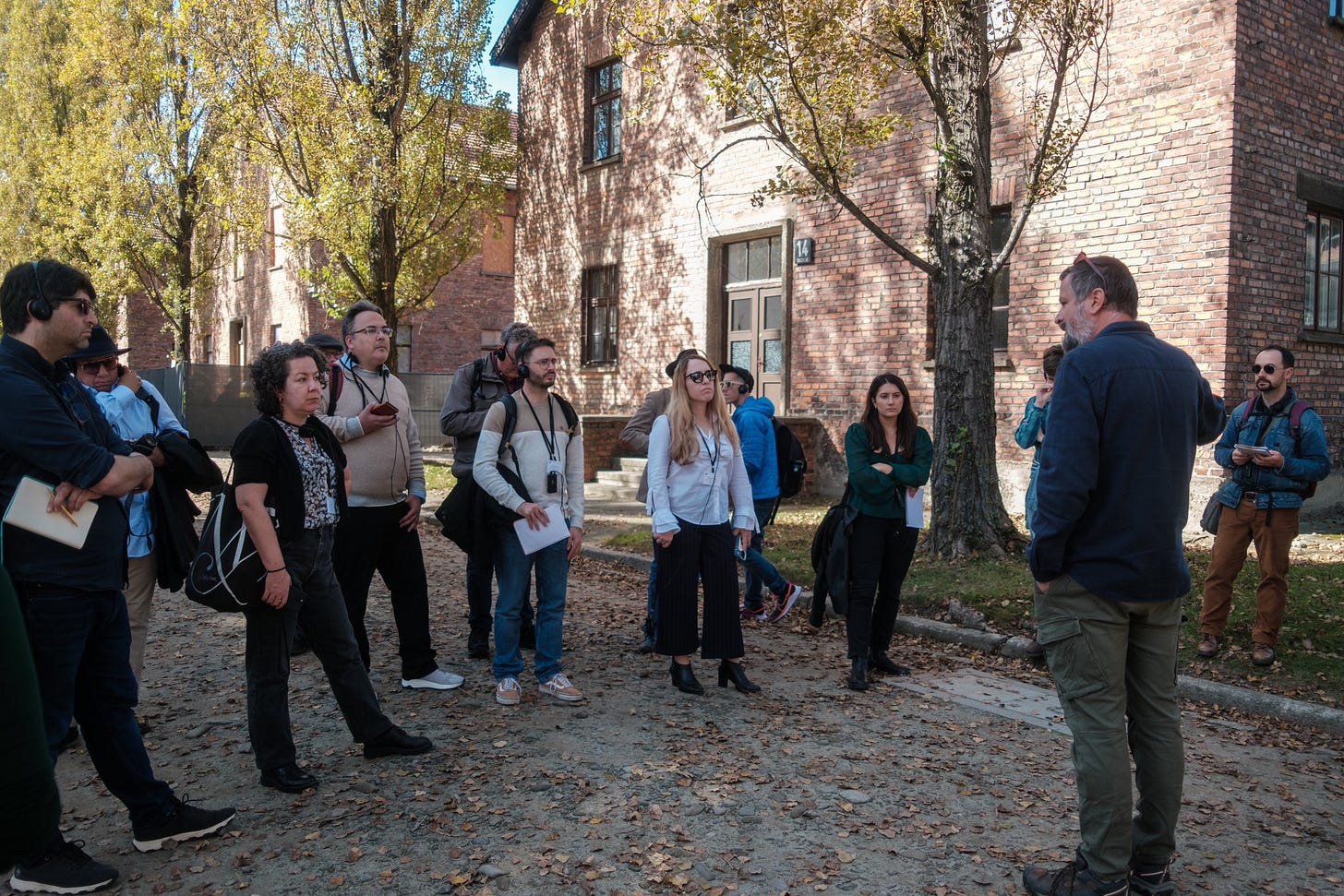
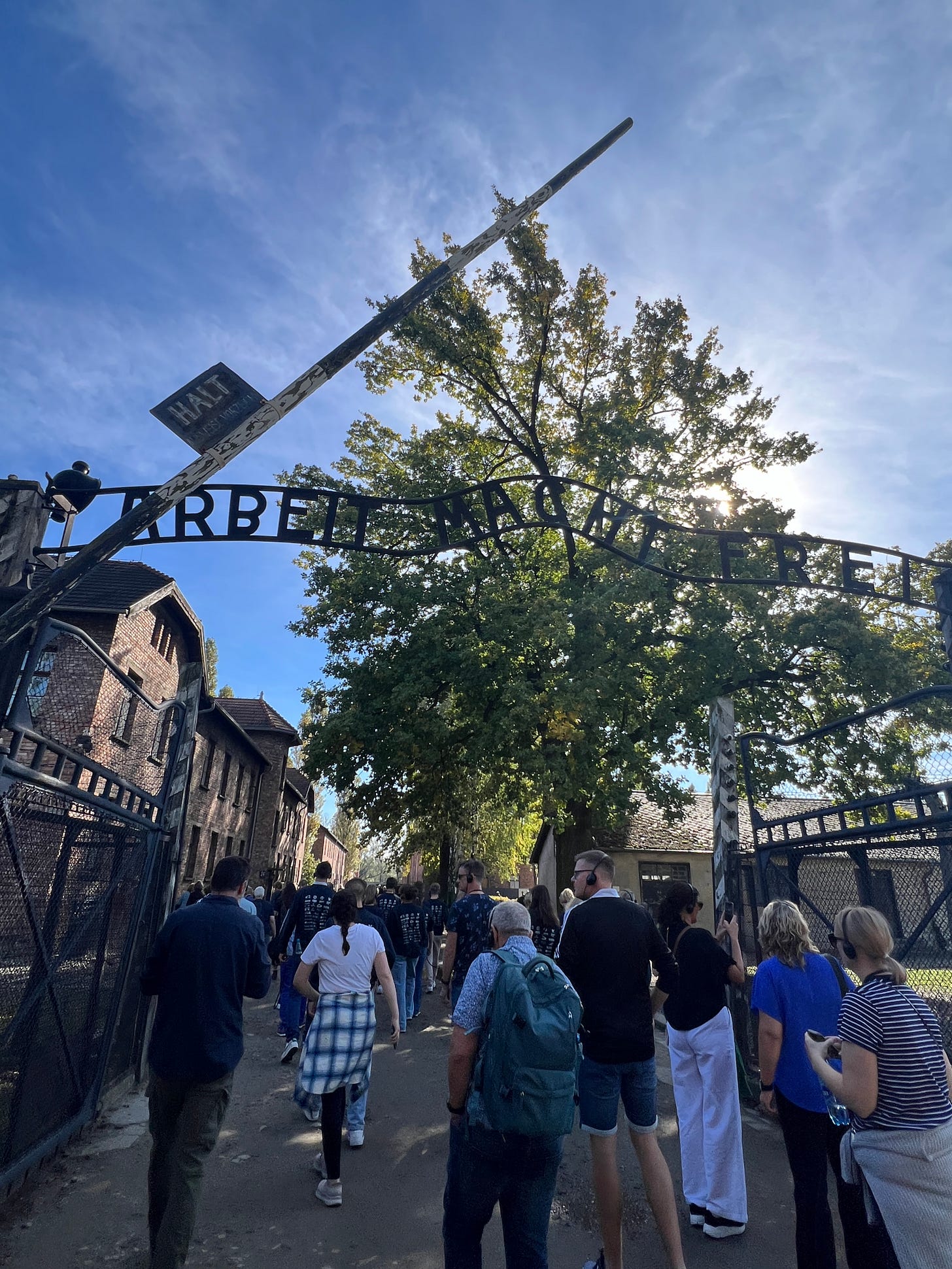


From Rod Serling: All the Dachaus must remain standing. The Dachaus, the Belsens, the Buchenwalds, the Auschwitzes – all of them. They must remain standing because they are a monument to a moment in time when some men decided to turn the earth into a graveyard, into it they shoveled all of their reason, their logic, their knowledge, but worst of all their conscience. And the moment we forget this, the moment we cease to be haunted by its remembrance, then we become the grave diggers.
From Omar Bradley: The smell of death overwhelmed us even before we passed through the stockade. More than 3200 naked, emaciated bodies had been flung into shallow graves. Others lay in the streets where they had fallen. ... Eisenhower's face whitened into a mask. Patton walked over to a corner and sickened. I was too revolted to speak. For here death had been so fouled by degradation that it both stunned and numbed us.
From G. Hoffman: Today, sadly, there is a global surge in anti-Semitism - including here in the U.S.
It has only taken us two generations to forget what happened in Auschwitz and Dachau, Belsen, Buckenwald and the hundreds of other camps. Two generations to erase the memory of mankind's most despicable acts. It took us two generations to become grave diggers again.
Thank you very much, Ms. Hoffman, for this reminder that such horrors should never be forgotten.